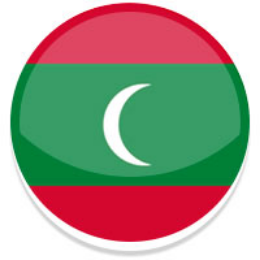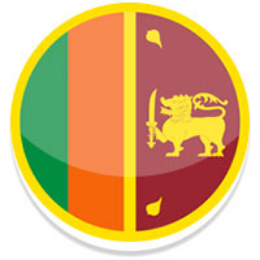ABOUT
In light of Sustainable Development Goal 4, increasing focus is being placed on measuring and improving student learning outcomes. Across countries in South Asia, there are varied levels of institutional capacity in place to measure learning outcomes in a robust manner. There is particularly a need for guidance and capacity building on the analysis and use of assessment data to improve teaching and learning.
Within this context, UNICEF Regional Office for South Asia (ROSA) initiated the development of the All Children Learning Assessment Platform to:
- Serve as a source of best-practice guidance on assessment
- Establish a community of practice and knowledge exchange
- Develop tools to support and facilitate key assessment activities.
The Platform is a collaborative initiative, developed for and with government experts and stakeholders, and experts from partner organizations supporting assessment worldwide.

DIGITAL PUBLIC GOODS
We support the digital principles which are: Design With the User, Understand the Existing Ecosystem, Design for Scale, Build for Sustainability, Be Data Driven, Use Open Standards, Open Data, Open Source, and Open Innovation, Reuse and Improve, Address Privacy & Security, and Be Collaborative.
We are implementing and building on the following digital public goods:
- D3.js, (data visualization/mapping)
- Discourse, (forum/community software)
- eCharts, (data visualization)
- Moodle, (eLearning Platform)
- StatPlanet, (data visualization/mapping platform)
- WordPress. (content management system)
VISION
The purpose of the Platform is to strengthen national capacities to measure learning, as well as to use assessments to improve learning. It promotes a systematic, step-by-step approach to strengthening assessment systems by providing the big picture on assessment, facilitating identification of where each assessment system is at with regards to the key phases and assessment activities, and support the gradual move towards international best practices in each area.
A longer-term aim is to provide tools to support and facilitate key assessment activities, in particular the ‘bottleneck’ areas where there tends to be a great reliance on external, international expertise.
Key target beneficiaries are:
- Government assessment experts and stakeholders responsible for managing, planning and conducting learning assessments at national and sub-national levels, as well as analyzing and using assessment data.
- Research and consultancy firms and individuals contracted to do these types of work.
- Staff of UN agencies such as UNICEF, international organizations and non-profits which support the conduct of assessments, analysis and use of assessment data, and strengthening of assessment systems.
- Teachers who are called on to develop assessment materials for use in their education system and/or directly with their students.
OBJECTIVES
The purpose of the Knowledge Platform is to improve the measurement of learning, as well as the use of assessments to improve learning, by
EDUCATION SYSTEM CONSULTATIONS
To ensure that the website is a good fit with the needs of users, it is important to consult with potential end users. The purpose of the consultations will be to better understand the needs and challenges faced by assessment practitioners in order to adapt and contextualize the guidance the platform will provide. The purpose is also to identify strengths, good practice examples, challenges and bottlenecks in current assessment activities in the region.
During the three-day meeting in Kathmandu between UNICEF ROSA, CSF and ACER in January 2019, a number of consultations were undertaken with assessment practitioners in Nepal. Additional consultations will take place in two to four other countries in South Asia by phone or through field visits, as well as in several states in India. Members of the ACER India team will also draw on their experiences working with and building the capacity of assessment teams in Afghanistan, Bangladesh, Bhutan, India (at the national level and in a number of states) and Nepal.
STEERING COMMITTEE
GOVERNMENT CONSULTATION GROUP
MEMBER COUNTRIES








The main target beneficiaries of the Platform resources and tools are government assessment practitioners and stakeholders, and teachers and teacher trainers. Their involvement in this initiative is therefore essential to ensure the Platform responds to their needs and addresses the challenges they face in conducting assessments (whether at national, sub-national level, or classroom level).
To this end, a Government Consultation Group is being established. Its role will be to ensure the relevance and usefulness of the Platform, as well as appropriate contextualization to country contexts. It will not replace but rather complement the ongoing face-to-face and survey-based consultations which were conducted since 2018, involving government stakeholders and assessment experts from all eight countries in South Asia, as well as consultations during the SAARC SDG 4 Workshop in Kathmandu in May 2019. Future engagements will also continue through regional and international conferences and workshops, in collaboration with partners and other assessment initiatives, such as the Global Alliance to Monitor Learning (GAML) led by UNESCO Institute for Statistics, and the Network on Education Quality Monitoring in the Asia Pacific (NEQMAP). In addition, the Platform itself will serve as a community hub to engage with assessment experts and stakeholders through the community fora.
These engagements are important to (i) continuously adapt and contextualize the Platform to meet the key challenges and bottlenecks faced by countries, (ii) ensure that it builds on best practices and innovations within countries and globally, rather than reinvents the wheel, and (iii) ensure government ownership of the Platform and resources and promote South-South collaboration.
